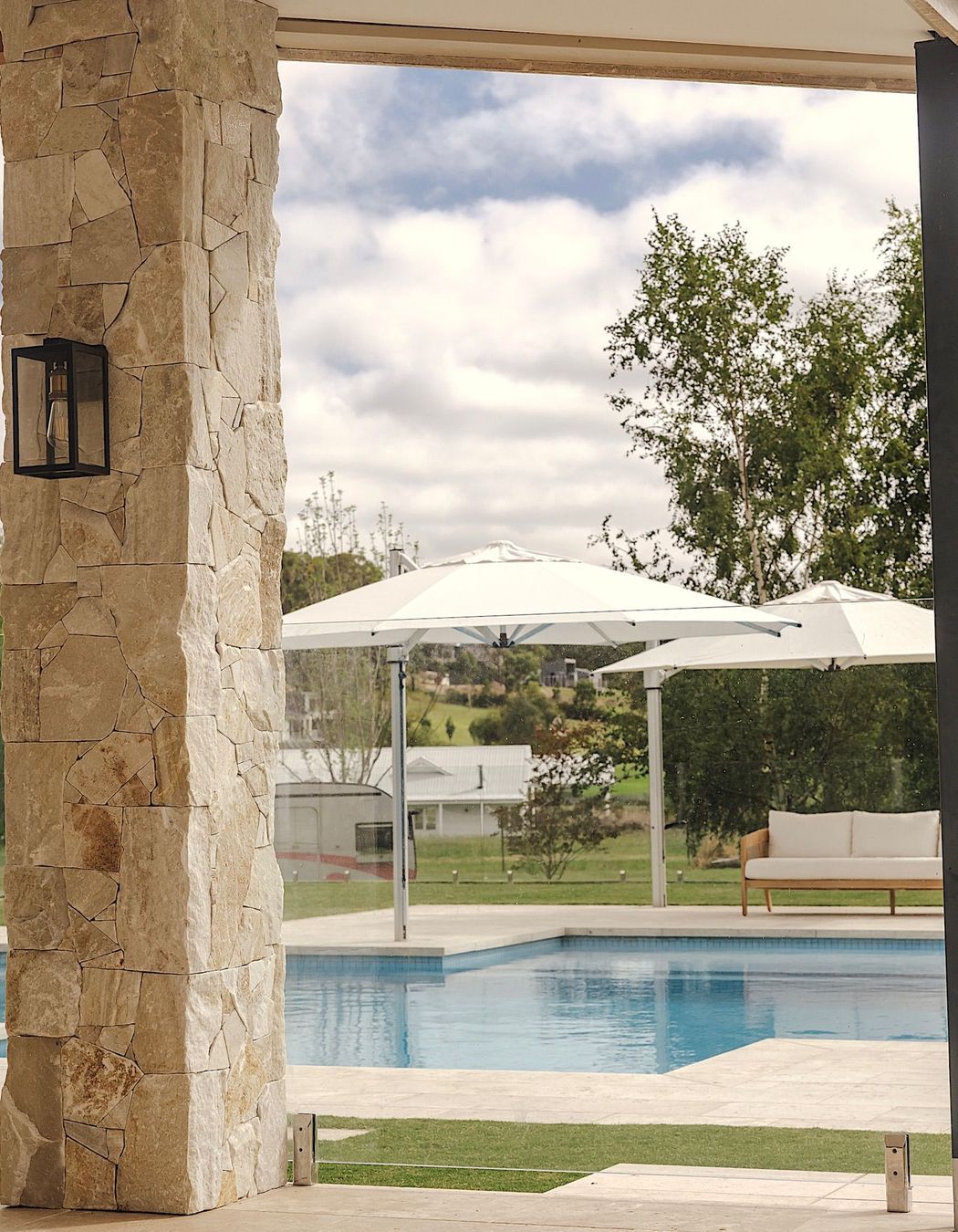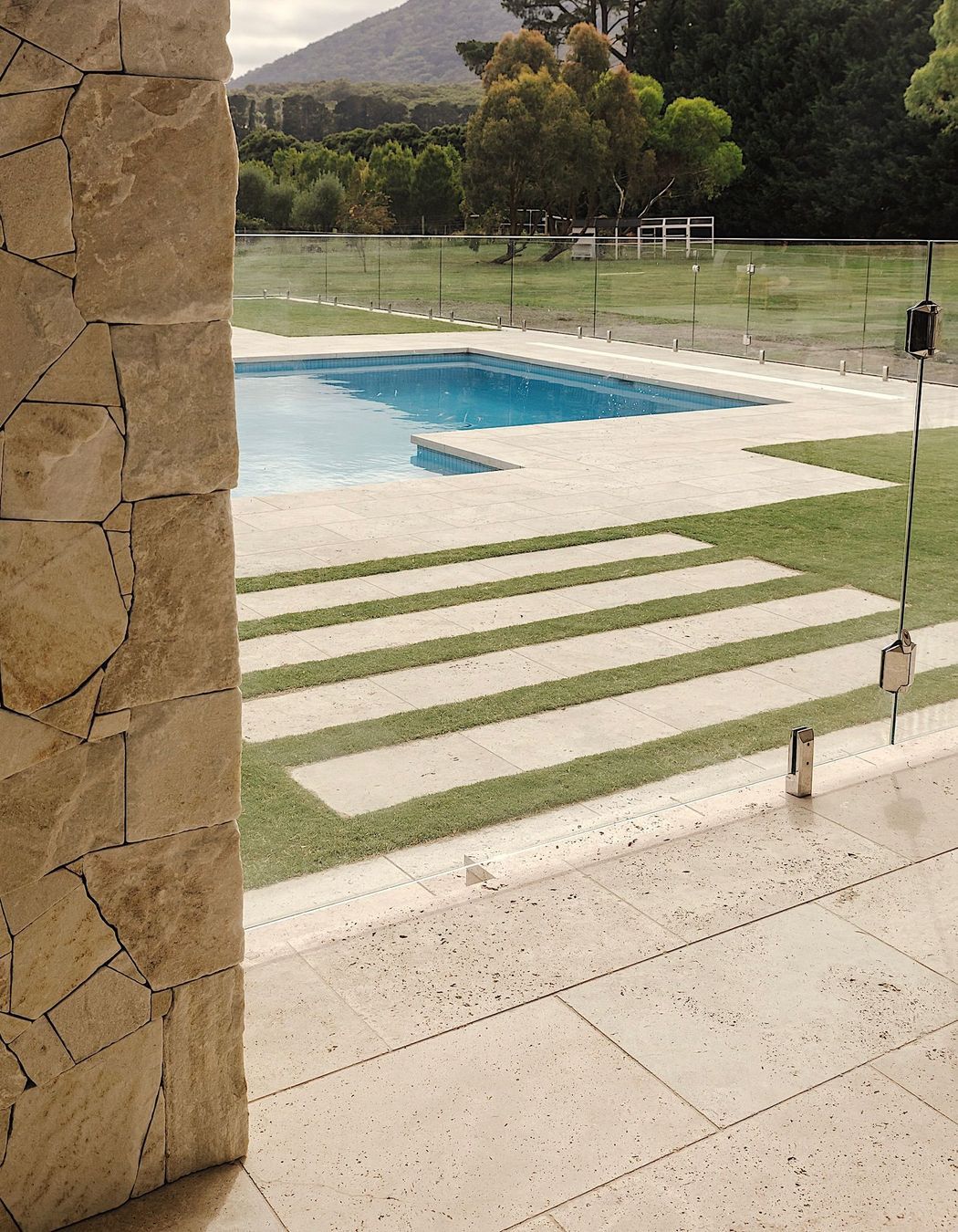Exploring the pros and cons of sandstone, limestone and travertine on architectural projects
Written by
08 July 2024
•
5 min read

Choosing the right natural stone for your project
Sandstone, limestone, and travertine are popular choices within the design community, each with unique organic characteristics. ArchiPro speaks with Prolific Stone International, an Australia natural stone manufacturer and supplier, about the pros and cons of these popular natural stone choices.
Established in 2019 by Co-Directors Jason Jordan, Brett Winch and Simon Heyblok, Prolific Stone International manufactures and supplies natural stone Australia-wide. “We saw a gap in the market for a business that had ease of communication and cared about customer service and delivered a quality stone product," says Heyblok, Co-Director.
Heyblok advises that when selecting between sandstone, limestone, and travertine, the project's specific requirements must be considered.
Heyblok recommends specifiers consider their key project objective. “If you are after a natural, heritage-look, sandstone is your best bet. For a more elegant and sophisticated appearance, travertine is the ideal choice,” he says.
“Both limestone and travertine are more durable and have lower maintenance than sandstone, making them suitable for high-traffic areas and outdoor applications.”
Each stone has strengths and weaknesses that can influence the final decision.
Sandstone
Pros:
1. Aesthetic appeal: Sandstone has a timeless, rustic look that can enhance the beauty of any outdoor or indoor space.
2. Versatility: It comes in various colours and textures, making it suitable for different design styles.
Cons:
1. Porosity: Sandstone is soft and porous. These characteristics make it prone to absorbing water and other liquids, leading to staining and mould growth.
2. Maintenance: Because of its porosity, sandstone requires sealing, especially in outdoor applications like paving around pools. Without proper sealing, it can quickly become mouldy.
Limestone
Pros:
1. Durability: Limestone is less porous than sandstone. Thanks to this density, limestone doesn’t need sealing and won’t go mouldy, making it a durable option for indoor and outdoor applications.
2. Low maintenance: Unlike sandstone, limestone doesn’t require frequent sealing, making it easier to maintain in the long term.
Cons:
1. Cost: While limestone is reasonably affordable, the price can vary depending on the quality and source of the stone.
2. Weather sensitivity: Although limestone is more resistant than sandstone, the softer veiations can deteriorate over time if exposed to extreme weather conditions.
Travertine
Pros:
1. Aesthetic value: Travertine has a unique, marble-like appearance that adds elegance to any space.
2. Durability: Travertine is durable and suitable for indoor and outdoor applications. It resembles the qualities of limestone with similar hardiness and resistance to wear.
Cons:
1. Cost: Travertine is more expensive because it is quarried in Turkey, making the shipping costs more expensive.
2. Porosity: Like sandstone, travertine can be porous and might require sealing, particularly in high-moisture areas.
Travertine Pool project:
The client wanted the supply and installation of paving and wall cladding suitable for their property makeover. They approached Prolific Stone as they were unsure which type of stone would be best suited for around the pool and also complement their existing home.
Prolific Stone suggested using premium classic travertine for the pool area. This material is low heat absorbent and ties in with the beige exterior colour of the home. Prolific Stone also suggested Portsea wall cladding, which is predominantly white with beige and yellow tones.
The project was completed within budget and on time. The clients' have enjoyed a summer with pool paving that is cool underfoot and safe for the children.



A specifier guide to natural stone selection, supply and installation
Prolific Stone provides a comprehensive supply and installation process designed to make the selection and implementation of natural stone as seamless as possible. Heyblok provides an overview of the company’s process:
1. Initial consultation:
The process begins with an in-depth discussion to understand the project's requirements. This includes assessing the type of stone, the design preferences, and the application. "We also assess the situation, whether it be sandstone or limestone. We want to ensure that the right product is suitable for the application," Jordan adds.
2. Sample provision:
Specifiers can request samples of stones to see how they fit with their project. "We ship out stone samples, and if they’re in Melbourne, we like to personally deliver them because you find that one-on-one is always a nicer customer experience," says Heyblok.
As a recognised stone supplier to Melbourne City Council, the team’s commitment to customer service, quality, and sustainability makes them a reliable choice for any architectural or design endeavour.
3. Quotation and ordering:
Once a suitable stone is selected, Prolific Stone provides a detailed quote for the supply and installation. If the stone needs to be a special order, this is coordinated promptly to meet project timelines.
4. Installation:
Upon acceptance of the quote, a schedule is arranged for the installation. If Prolific Stone is completing the installation, its team of qualified tradespeople ensure it is carried out to the highest standards. "We have a collective group of qualified trades that we can rely on around Australia," remarks Heyblok.
5. Aftercare and maintenance:
Prolific Stone offers a guarantee on its installations. Depending on the stone and its application, care packages may include recommendations for sealing and maintenance to ensure longevity.
Prolific Stone offers a range of high-quality natural stones and provides comprehensive services from supply to installation of natural stone and commercial paving, ensuring you receive the best product and support for your project. As a recognised stone supplier to Melbourne City Council, the team’s commitment to customer service, quality, and sustainability makes them a reliable choice for any architectural or design endeavour.
For more information, head to the Kilsyth showroom or contact Prolific Stone International on ArchiPro today.
